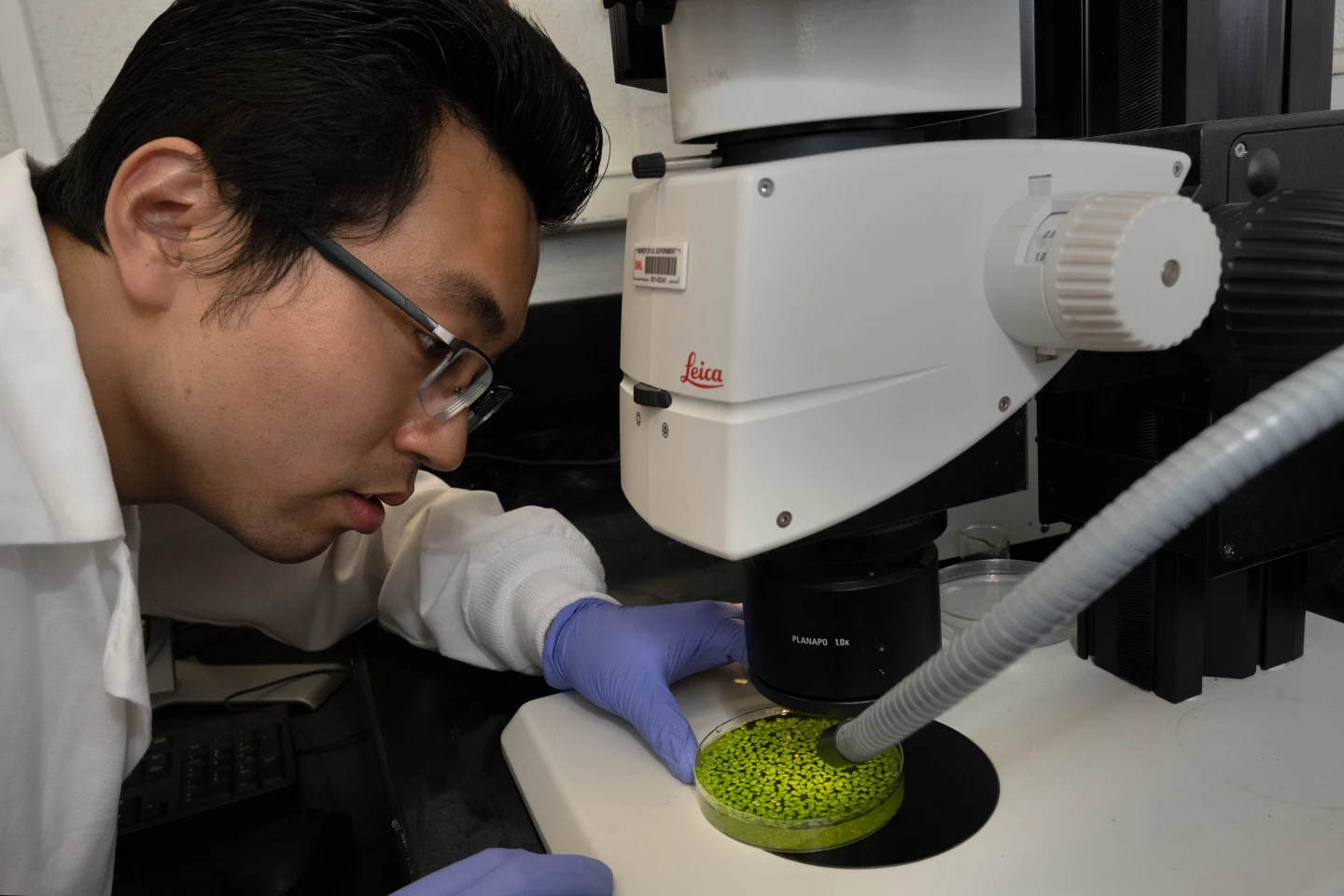While plants such as corn and soybeans are major sources of biofuel, they're grown on land that could otherwise be used for food crops. With that problem in mind, scientists have genetically engineered oil-producing duckweed that could be grown in wastewater.
The study was conducted by researchers from the US Department of Energy’s Brookhaven National Laboratory and New York's Cold Spring Harbor Laboratory. They started with an existing type of duckweed known as Lemna japonica, to which they added multiple genes which were already known to drive oil production and storage in other plants.
In what is described as a push/pull/protect effect, one of those genes pushes (increases) the production of fatty acids, one of them pulls (assembles) those fatty acids into triacylglycerol oils, and another protects them from environmental degradation by coating the oil droplets in plant tissue. As a result, the engineered duckweed accumulates oil at almost 10% of its dry weight biomass, which is reportedly a 100-fold increase over the accumulation rate of the plant's wild counterpart.
Its oil yields are also seven times higher than those of soybeans. Unlike soybeans, however, crops of the duckweed wouldn't take up farmland, as they'd be grown in large vessels or ponds. In fact, the scientists suggest that duckweed crops could be grown in the liquid waste runoff from pig and poultry farms, which the plants would help to clean up by drawing excess nutrients out of the water.

One challenge lay in the fact that ordinarily, the gene that pushes fatty acid production also stunts plant growth. In order to get around that problem, the "push" gene was paired with another gene known as a promoter, the latter of which is activated by adding a specific chemical inducer to the water. "Adding this promoter keeps the push gene turned off until we add the inducer, which allows the plants to grow normally before we turn on fatty acid/oil production," said the lead scientist, Brookhaven biochemist John Shanklin.
The researchers are now looking into methods of growing the duckweed and extracting oil from it on a commercial scale.
A paper on the study was recently published in the Plant Biotechnology Journal.
Source: Brookhaven National Laboratory







